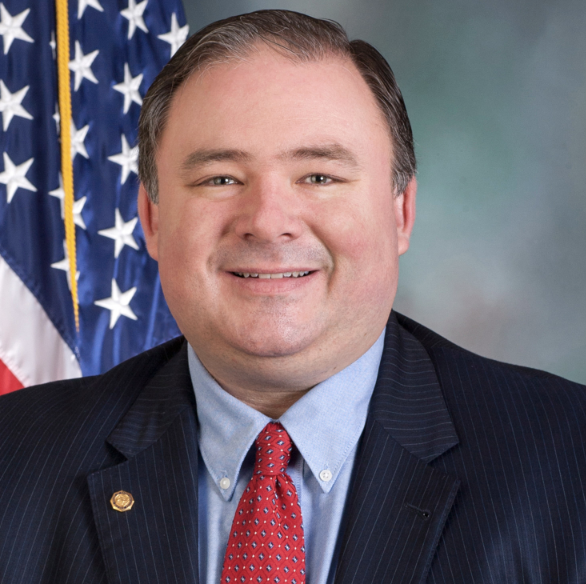REGAN: Rioting in Philadelphia Costing Commonwealth Millions

Law and order are long overdue in the City of Brotherly Love. This week’s rioting is the latest black eye on Philadelphia in an ongoing saga of dangerous incidents that keep piling up. Disgraceful criminals with zero respect for the city, for their neighbors, and for businesses that fuel the local economy have caused destruction beyond belief.
As Chairman of the Senate Law and Justice Committee, I want to commend the Philadelphia City Police, who have managed to make arrests and reel in the lawlessness each evening. The Police are doing their job in reestablishing law and order. I wish the same could be said for District Attorney Larry Krasner, whose philosophy has added to the mayhem in Philadelphia because criminals understand his reluctance to prosecute them.
This lax approach and allowing criminals to take control is resulting in severe losses to the city. Tourists are too fearful to visit. Businesses are relocating to other cities. Law abiding residents have decided to move on.
And the impact will not just be on Philadelphia. The city’s economy is a significant driver of Pennsylvania’s economy.
The Law and Justice Committee, in addition to overseeing police matters, has oversight of the Pennsylvania Liquor Control Board and medical marijuana issues.
Rioters have hit PA liquor stores across the city, resulting in an estimated loss of $750,000 to $1,000,000 each day those stores are closed. This does not even take into account the loss of product stolen by these criminals and the cost of clean-up.
Additionally, a medical marijuana dispensary in the city was broken into as part of the looting efforts. Authorities have not yet released what all, if anything, was stolen, but it is one more business that should not be dealing with a mess of replacing windows, doors, display cases and anything else that was damaged.
All of this costs time and money. While these costs will be paid upfront by business owners, insurance companies, and in the case of state stores – taxpayers, ultimately, these damages will be passed on to everyone through higher prices on goods, insurance premiums, and increased taxes to ensure the continuation of police coverage.
I certainly hope those that were advocating to de-fund the police in recent years realize that approach serves no one. If it was your business being looted, you’d expect the police to respond. But if we’re not funding them, obviously, there won’t be anyone to help you.
We not only need to continue funding the police but also protecting them and ensuring our rioting laws are updated and keeping up with changing times. That is why I commend my colleague Senator Frank Farry (R-Bucks) and am happy to join in his effort to sponsor legislation targeting rioters, particularly out-of-state residents who travel here for the purpose of rioting and those Commonwealth residents who recruit out-of-staters to riot in Pennsylvania. I will be working with him to also include measures that hold accountable those who use social media to rally troops to riot, fueling the fire and further creating mayhem. All of these individuals will face felony charges under our legislation.
At least in the rest of Pennsylvania. Maybe not in Larry Krasner’s Philadelphia.
Please follow DVJournal on social media: Twitter@DVJournal or Facebook.com/DelawareValleyJournal





